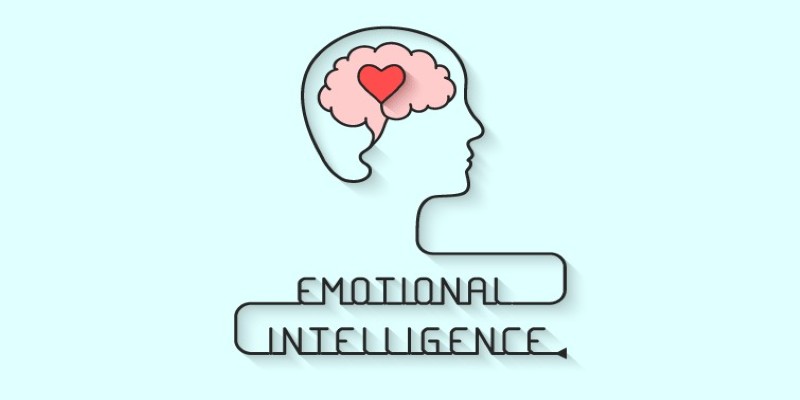9 Essential Career Training Skills To Boost Your Professional Journey
In today's competitive job market, career training plays a crucial role in shaping your professional journey. Whether you are just starting or looking to advance in your current position, honing the right skills can make a significant difference in your career trajectory. While technical expertise and knowledge are important, soft skills, adaptability, and continuous learning are equally vital in ensuring sustained career success. In this article, we'll dive into the essential career training skills that can enhance your professional development and make you a standout in your field.
Effective Communication Skills
Effective communication is one of the most valuable skills you can develop in any career. It transcends industries and roles, influencing your ability to interact with colleagues, clients, and stakeholders. Being able to express your thoughts clearly, listen actively, and adapt your communication style to different audiences is a powerful tool in the workplace.

Strong communication skills not only improve collaboration but also help in conflict resolution, leadership, and building rapport with others. Whether it's delivering a presentation, participating in a meeting, or crafting emails, knowing how to communicate effectively can increase your influence and credibility.
Emotional Intelligence (EQ)
Emotional Intelligence (EQ) refers to your ability to recognize, understand, and manage your emotions, as well as the feelings of others. High EQ is a critical factor in professional success because it impacts how you navigate social complexities, manage relationships, and make decisions under pressure.

Having a high level of emotional intelligence allows you to empathize with others, resolve conflicts effectively, and create a harmonious work environment. Leaders with strong EQ are more adept at motivating teams, handling stress, and making sound decisions that take into account both logical and emotional factors. Furthermore, emotional intelligence supports your ability to handle criticism and setbacks with resilience, which is essential for personal and professional growth.
Time Management And Organization
Time management is a skill that is essential for anyone looking to thrive in their career. Balancing multiple tasks, meeting deadlines, and staying productive can be challenging without a structured approach to time management. Good time management allows you to prioritize important tasks, minimize distractions, and complete projects on time, which enhances your professional reputation and reliability.
Training in time management helps you master techniques such as task prioritization, scheduling, goal setting, and dealing with procrastination. With the right time management skills, you can become more efficient, reduce stress, and ensure that you are consistently meeting expectations at work.
Leadership And Teamwork Skills
Even if you don’t have a formal leadership role, leadership and teamwork skills are essential for your professional development. Leadership is about more than just directing others; it's about motivating, inspiring, and fostering collaboration. On the other hand, teamwork is essential for most work environments, as very few jobs are completed in isolation.

Training in leadership skills can teach you how to manage teams effectively, set clear goals, delegate tasks, and provide constructive feedback. It can also help you develop decision-making abilities and conflict-resolution strategies.
Problem-solving and Critical Thinking
Problem-solving and critical thinking are skills that allow you to approach challenges with clarity and creativity. In almost any role, you will encounter situations that require a thoughtful approach to overcome. The ability to analyze problems, think critically about potential solutions, and make informed decisions is invaluable.
Critical thinking involves examining issues from multiple perspectives and understanding the underlying causes of problems. Problem-solving, on the other hand, is about developing actionable solutions. By honing these skills, you can improve your ability to tackle challenges efficiently and provide innovative solutions that benefit your team or organization.
Technical Skills And Industry-Specific Knowledge
While soft skills are essential, technical expertise and industry-specific knowledge are still crucial to advancing in many careers. Depending on your profession, this could involve mastering specific tools, software, or systems relevant to your job. Staying current with technological advancements in your field is necessary for remaining competitive.

For example, in IT and software development, staying updated with the latest programming languages, software tools, and frameworks is vital. In healthcare, it could mean learning about new medical technologies or procedures. Acquiring certifications and attending industry-specific training programs can ensure that you remain proficient and can add immediate value to your organization.
Adaptability And Continuous Learning
The workplace is constantly evolving, and adaptability has become one of the most valued skills in today’s job market. Being open to change and learning new skills will allow you to keep pace with technological developments and shifting industry demands. Professionals who continuously learn and evolve are more likely to succeed in the long term.
Training in adaptability can include learning how to embrace new technology, understanding changing market trends, and being open to new ways of thinking and working. It’s also about being flexible enough to handle change without letting it disrupt your productivity or morale.
Networking And Relationship Building
Networking is often cited as one of the most important career skills, and for good reason. Building and maintaining professional relationships can open doors to new opportunities, collaborations, and mentorship. Networking allows you to exchange ideas, learn from others, and even advance in your career by connecting with individuals who share similar interests or can offer guidance.
To improve networking skills, focus on building genuine relationships rather than just seeking professional gain. Attend industry events, engage in online forums, and participate in group discussions to expand your network. Cultivating strong relationships with colleagues, mentors, and other professionals will provide you with valuable support and advice throughout your career.
Personal Branding And Online Presence
In today's digital age, personal branding is a key component of career development. Your online presence, especially on platforms like LinkedIn, can significantly influence how others perceive you professionally. Having a strong personal brand helps you stand out to potential employers, clients, or collaborators.

Training in personal branding can help you create an online portfolio, optimize your social media profiles, and effectively communicate your skills, achievements, and values. It also involves understanding how to engage with your audience and promote your professional image authentically.
Conclusion
In summary, the essential career training skills outlined in this article are key to boosting your professional journey. Whether you are aiming to improve communication, enhance leadership abilities, stay adaptable in a changing environment, or sharpen your technical knowledge, investing in the development of these skills will pay off in the long run. Career growth is not just about acquiring knowledge but also about continuously evolving, staying open to new ideas, and honing both soft and hard skills.
Latest Article
-

- Summer Shopping Essentials: Must-Have Items For A Stylish Season
-

- Understanding Car Insurance Deductibles And Coverage Limits
-

- Understanding Fees And Charges On Trading Platforms
-

- How To Choose The Right Career Training Program: A Step-By-Step Guide
-

- Exploring AI-Driven Tools In Stock Trading Platforms
-

- Beauty On a Budget: How To Find High-Quality Skincare For Less?














